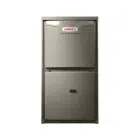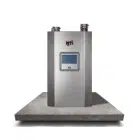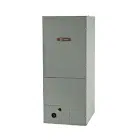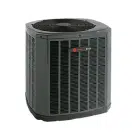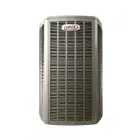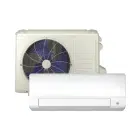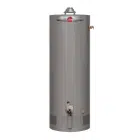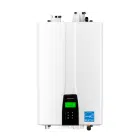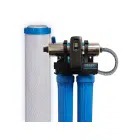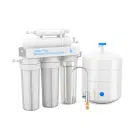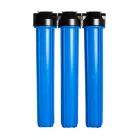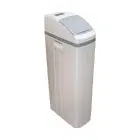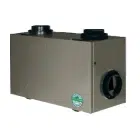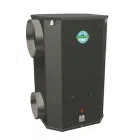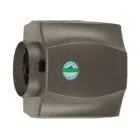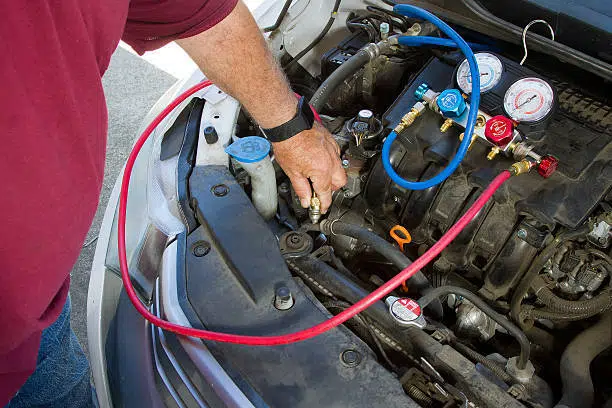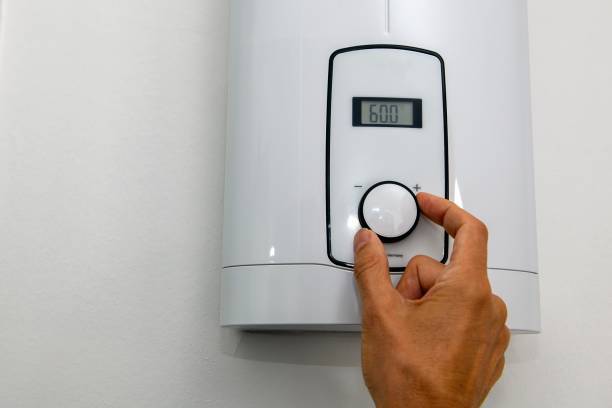
Table of Contents
Choosing the right water heater for your home or business is a big decision, and with so many options out there, it can feel a bit overwhelming. In recent years, tankless water heaters have become an increasingly popular choice, especially in Canada, where energy efficiency and reliable hot water are essential. But are they really worth the investment? This article will break down the pros and cons of tankless water heaters, helping you make an informed decision for your home or business.
Pros of Tankless Water Heaters
When considering a switch to a tankless hot water heater, it’s important to understand what makes these systems appealing. Here are the main advantages that have Canadian homeowners and businesses considering this option.
Energy Efficiency: Save on Your Utility Bills
One of the biggest selling points of tankless water heaters is their energy efficiency. Unlike traditional water heaters that continuously heat a large tank of water, tankless systems heat water on demand. This means you’re not wasting energy keeping a tank of water hot 24/7. For homeowners in Canada, where heating costs can be significant, this efficiency can lead to noticeable savings on your energy bills.
Let’s put it into perspective: According to Natural Resources Canada, tankless hot water heaters can be up to 24-34% more energy-efficient than conventional storage tank water heaters, especially in homes that use 41 gallons or less of hot water daily. Over time, these savings can add up, making the initial investment in a tankless system more justifiable.
Space-Saving Design: Free Up Valuable Real Estate
Space is often at a premium in Canadian homes and businesses. Traditional water heaters, with their bulky tanks, can take up a lot of room, especially in basements or utility closets. Tankless water heaters, on the other hand, are compact and can be mounted on a wall, freeing up valuable space. Whether you’re looking to maximize storage in your home or optimize the layout of your business, the space-saving design of a tankless hot water heater can be a significant advantage.
This is particularly beneficial for small homes or urban properties where every square foot counts. Imagine using the extra space for storage, an additional appliance, or even just decluttering your utility area. The slim profile of a tankless unit can make a noticeable difference.
Longevity: A Long-Term Investment
When it comes to major appliances, longevity matters. Traditional water heaters typically last around 10-15 years before needing replacement. In contrast, tankless water heaters can last up to 20 years or more with proper maintenance. This extended lifespan means you won’t have to worry about replacing your water heater as often, making a tankless hot water heater a long-term investment.
While the upfront cost is higher (more on that later), the durability and longevity of a tankless water heater can offset this over time. Plus, many tankless units come with longer warranties, giving you added peace of mind.
Limit Switch and Thermostat Issues
The limit switch monitors the furnace’s temperature, ensuring it doesn’t overheat. Problems with this switch or your thermostat can trigger error codes that often point to airflow issues.
Unlimited Hot Water: Never Run Out Again
How many times have you run out of hot water in the middle of a shower, especially when you have guests over? With a tankless water heater, that’s a problem of the past. Since these systems heat water on demand, you can enjoy a continuous supply of hot water on demand, no matter how many people are showering, doing laundry, or washing dishes at the same time.
For larger families or businesses with high hot water demand, this is a game-changer. You won’t have to worry about scheduling showers or delaying chores because the hot water tank needs time to refill. Instead, you’ll have hot water on demand when you need it, as much as you need.
Find out how much it costs to install a new tankless water heater in our previous guide via the link below.
https://thehvacservice.ca/understanding-tankless-water-heater-installation-costs/
Cons of Tankless Water Heaters
While the benefits of tankless water heaters are compelling, it’s important to consider the potential drawbacks as well. Here’s what you need to keep in mind before making the switch.
Higher Initial Cost: An Investment to Consider
Let’s address the elephant in the room: cost. Tankless water heaters generally come with a higher price tag than traditional water heaters. This includes both the cost of the unit itself and the installation, which can be more complex (we’ll cover that in a bit). For some homeowners and businesses, the upfront cost can be a significant barrier.
However, it’s essential to look at this as an investment. While the initial cost is higher, the energy savings and longer lifespan can make up for it over time. Additionally, many regions in Canada offer rebates or incentives for installing energy-efficient appliances like tankless water heaters, which can help offset the initial expense. At HVAC Service Solutions, we offer a range of quality tankless hot water heaters to fit your budget and ensure you’re getting the best value for your money.
Potential Flow Rate Issues: Consider Your Household’s Needs
While tankless water heaters provide endless hot water, they do have limitations when it comes to flow rate. This means that if multiple taps or appliances are using hot water simultaneously, the system might struggle to keep up. For example, running a shower, dishwasher, and washing machine all at once could result in a drop in water temperature.
This isn’t a deal-breaker, but it’s something to consider, especially for larger households or businesses with high hot water usage. One solution is to install multiple units or choose a model with a higher flow rate, but this will increase the overall cost. It’s crucial to assess your hot water needs and discuss them with a professional installer to ensure your tankless hot water heater is adequately sized.
Complex Installation: A Job for the Pros
Installing a tankless water heater isn’t as straightforward as swapping out an old tank for a new one. Depending on your existing setup, you may need to upgrade your electrical system or gas lines to accommodate the new unit. This can add to the complexity and cost of the installation.
Additionally, tankless water heaters need proper venting and may require specific placement to function optimally, particularly in cold climates like Canada’s. Incorrect installation can lead to inefficiency, poor performance, or even damage to the unit, so it’s critical to hire a professional HVAC technician with experience in tankless systems. At HVAC Service Solutions, our experts are trained to handle these complexities, ensuring your tankless hot water heater is installed correctly and safely.
Cold Climate Considerations: Winter-Proofing Your System
Canada’s harsh winters can pose unique challenges for tankless water heaters. In extremely cold temperatures, there’s a risk of water pipes freezing, which can affect the performance of your unit or even cause damage. To mitigate this, it’s essential to ensure that your tankless water heater is properly insulated and that the installation is done with Canada’s climate in mind.
Some models are better suited for cold climates and come with built-in freeze protection. However, even with these features, proper installation and maintenance are key to ensuring your system operates efficiently throughout the winter. It’s a good idea to discuss these considerations with your HVAC provider to ensure your unit is well-prepared for the Canadian cold. HVAC Service Solutions offers top-of-the-line tankless hot water heaters specifically designed to withstand Canadian winters, so you can enjoy reliable hot water on demand year-round.
Conclusion
Tankless water heaters offer a range of benefits, from energy efficiency and space savings to a continuous supply of hot water on demand and a longer lifespan. However, they also come with potential drawbacks, including higher initial costs, flow rate limitations, complex installation, and cold climate challenges.
If you’re considering a tankless hot water heater, our HVAC Service Solutions team is here to help. We offer professional consultation, installation, and maintenance services to ensure that your system is a perfect fit for your home or business.
Contact us today to learn more about how a tankless water heater can benefit you and to get a personalized quote. We’re proud to provide high-quality tankless hot water heaters that you can rely on, ensuring you get the best performance and value. https://thehvacservice.ca/
Frequent Asked Questions
How do tankless water heaters work?
Tankless water heaters operate by heating water on demand, rather than storing it in a tank. When you turn on a hot water tap, cold water flows through the unit, where either an electric element or a gas burner rapidly heats the water to your desired temperature. Because the water is heated as it passes through the system, there’s no need for a storage tank, and you get hot water on demand. This process is highly efficient since energy is only used to heat water as needed, unlike traditional water heaters that constantly maintain a reservoir of hot water.
Are tankless water heaters really more energy-efficient?
Yes, tankless water heaters are generally more energy-efficient than traditional storage tank models. Since they heat water only when needed, they eliminate the standby energy losses associated with keeping a tank of water hot around the clock. According to the U.S. Department of Energy, tankless hot water heaters can be 24-34% more efficient for homes that use 41 gallons or less of hot water daily. This efficiency translates into lower energy bills over time, making tankless systems an attractive option for eco-conscious homeowners and those looking to reduce utility costs.
What are the main differences between gas and electric tankless water heaters?
The primary differences between gas and electric tankless water heaters are their energy source, installation requirements, and operating costs. Gas models typically provide higher flow rates, making them better suited for larger homes or businesses with higher hot water demand. However, they require a gas line and proper ventilation, which can complicate installation. Electric units, on the other hand, are easier to install since they don’t need venting, but they might have lower flow rates. Electric tankless water heaters are also generally more efficient but could be more expensive to operate in areas with high electricity costs.
Can a tankless water heater supply enough hot water for a large household?
Yes, but it depends on the unit’s size and your household’s hot water needs. A single tankless water heater might struggle to keep up if multiple outlets demand hot water simultaneously, such as when two showers, the dishwasher, and a washing machine are running at the same time. However, larger or multiple units can be installed to meet the demand. It’s crucial to choose a model with an appropriate flow rate (measured in gallons per minute, or GPM) that matches your peak usage. Consulting with a professional installer can help ensure your tankless hot water heater is properly sized for your home.
Are tankless water heaters worth the initial investment?
While tankless water heaters have a higher upfront cost than traditional tank models, many homeowners find them worth the investment due to their long-term energy savings, space efficiency, and longer lifespan. The energy savings from a more efficient system can offset the initial cost over time. Additionally, tankless water heaters typically last up to 20 years, which is 5-10 years longer than conventional tanks. When you also consider potential rebates or incentives for installing energy-efficient systems, the overall value of switching to a tankless hot water heater can be significant.
How much maintenance does a tankless water heater require?
Tankless water heaters require regular maintenance to ensure optimal performance and longevity. It’s recommended to have the unit inspected and serviced annually by a professional. This maintenance typically includes descaling the heat exchanger to remove mineral buildup, which is particularly important in areas with hard water. Regular maintenance also involves checking the system for leaks, cleaning or replacing air filters, and ensuring that the venting system is clear and functioning properly. Proper maintenance can help prevent issues like reduced efficiency, lower water flow, or even system failure.
Can a tankless water heater be installed in any home?
Tankless water heaters can be installed in most homes, but the installation process might vary depending on your current setup. For instance, if you’re switching from a traditional tank model, your home may require upgrades, such as a new gas line for a gas tankless unit or an electrical upgrade for an electric model. Additionally, proper venting is crucial for gas tankless systems, and placement considerations are important to ensure efficiency and prevent issues like freezing in colder climates. It’s best to consult with a professional HVAC technician to determine the feasibility and requirements for your specific situation.
Do tankless water heaters have any limitations?
While tankless water heaters offer many benefits, they do have some limitations. One of the main challenges is their ability to supply hot water simultaneously to multiple fixtures. If too many outlets are demanding hot water at once, the system may not be able to keep up, resulting in a drop in water temperature. Another limitation is the higher initial cost and potentially complex installation. Finally, in areas with very cold climates, tankless units may require additional insulation or features to prevent freezing, which could increase installation and maintenance costs.
How long does it take to install a tankless water heater?
The installation time for a tankless water heater varies depending on several factors, including whether it’s a gas or electric unit, the complexity of your home’s existing plumbing and electrical systems, and whether any upgrades are needed. Generally, installation can take anywhere from 4 to 8 hours for a straightforward setup. However, if your home requires significant modifications, such as running new gas lines or upgrading electrical circuits, the process could take longer—possibly up to a full day or more. It’s important to work with an experienced HVAC technician to ensure the installation is done correctly and efficiently.
What should I consider when choosing a tankless water heater?
When choosing a tankless water heater, consider several key factors: the size of your household or business, your hot water usage patterns, the unit’s flow rate (GPM), and whether you prefer a gas or electric model. You should also think about the installation requirements and costs, as well as the unit’s energy efficiency and potential savings over time. It’s also important to consider the climate you live in—some tankless hot water heaters are better suited for cold climates and come with freeze protection. Consulting with an HVAC professional can help you choose the best tankless water heater for your specific needs, ensuring you get reliable hot water on demand with maximum efficiency.
Share

